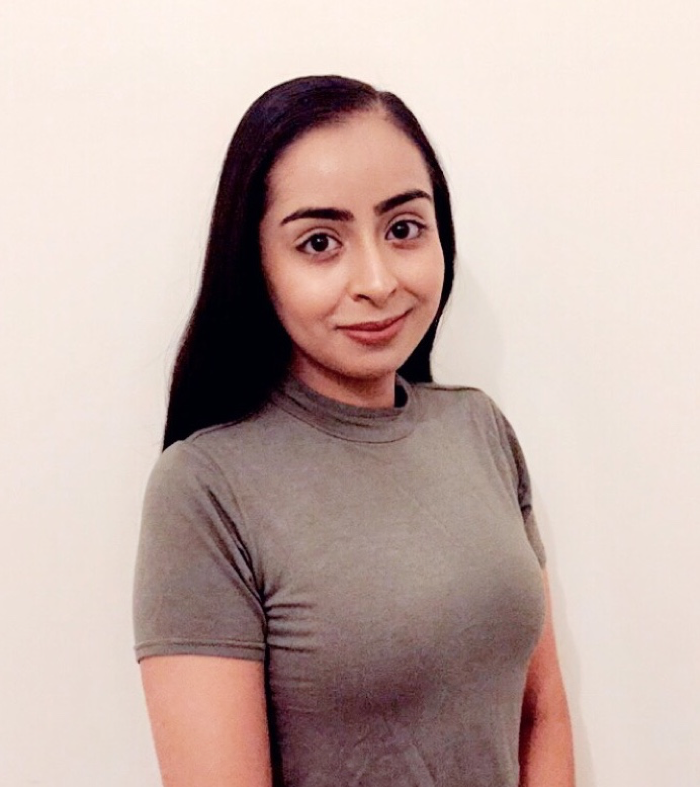Huge congratulations to Kiran on securing a graduate role with UBS off the back of her internship with them last summer! We caught up with her to ask her a few questions about her application process and to see if she had any tips to offer her fellow Bright Network members.
Why did you apply to UBS?
I came across UBS at the Bright Network Festival in 2016, when considering where to apply for internships and graduate positions. It was here that I had the firsthand opportunity to speak to representatives from UBS, not only about its programmes but also about the culture in the investment bank. What attracted me the most was the strategy and cultural change implemented by UBS post-crisis, displaying the bank’s resilience and client focus. It was clear that UBS conducts business to the upmost standard, and working for such a market leader alongside other like-minded professionals was really important to me.
Why did I apply for this role?
I had done some spring weeks and internships prior to applying to UBS and so had a fair idea about the different divisions within an investment bank. I applied for Securities (i.e. markets) because I wanted to work in a fast-paced and technical environment, where I could combine my interest in financial markets with my skill set. Having previously seen both the equities and the fixed income sides of the markets division at other banks, I specifically chose equities due to my interest in the combination of micro and macro forces which cause stock prices and markets to move. One thing I experienced during my internship was that markets are constantly changing due to new regulations and frameworks. This means we’re constantly learning and evolving, something I feel is important for personal and professional development regardless of which career path you follow.
What was the toughest part of the application process and what was your favourite part?
Personally, I would say the toughest part of the application process was the initial stage of filling in the online application where applicants are required to submit answers to various competency-/strength-/and motivation-based questions. I think this is the toughest part because it is really difficult for one to differentiate themselves from hundreds of other applicants applying for the same role. Some applicants might be really good at displaying their motivation using words whilst others might be better at doing so in person.
My favourite part of the application process had to be the assessment centre and meeting the other applicants. Whilst most may dread the thought of being assessed for half a day on various activities, I quite enjoyed attending and taking part in the UBS AC. It was similar to AC’s done by other banks in terms of the tasks you had to complete, but I did not constantly feel that I was being tested or assessed. In fact, both the HR team and the interviewers made us feel at ease by turning interviews into conversations and being really willing to answer any questions we had. I was really exhausted by the end of it as everyone was super friendly and talkative!
Was there anything about the application process that surprised you?
The application process is pretty standard across all investment banks and I’d say it was very similar at UBS, so no surprises there. The one thing I would say about the UBS application process is that from the first stage, your preferences are taken into account. Not only do you apply to a division of choice, but during interviews, you get asked where you would see yourself and what desks you think you would enjoy most. And this definitely gets taken into account once you join.
What 3 tips would you give Bright Network members who are about to apply to graduate roles?
1. Research, research, research - I think it’s really important to do some solid research into the banks you wish to apply to and the different roles available. More importantly, if possible try to go to networking events (such as the Bright Network Festival!), where you will have the opportunity to speak to representatives across various divisions and get a good insight into the roles and culture of the bank.
2. Keep up to date with financial news, regulatory changes and developments in markets and understand what opportunities arise from such news flow or developments. This is vital regardless of which division you wish to apply for, but make sure you understand how this relates to your particular division as well as the market as a whole.
3. Check your CV, cover letters and all applications before you hit send! You would be surprised at how many people don’t get through the first round due to errors in their application.
What was the hardest interview question you faced?
Since it was almost two years ago that I had my UBS interviews, I don’t recall the specific questions asked. However, the type of question that I personally find most difficult are those which ask you where you see yourself in 5 or 10 years. Whilst there is no right or wrong answer to these questions, it’s important to think about what you want to have achieved in this time and where you want to be heading.

